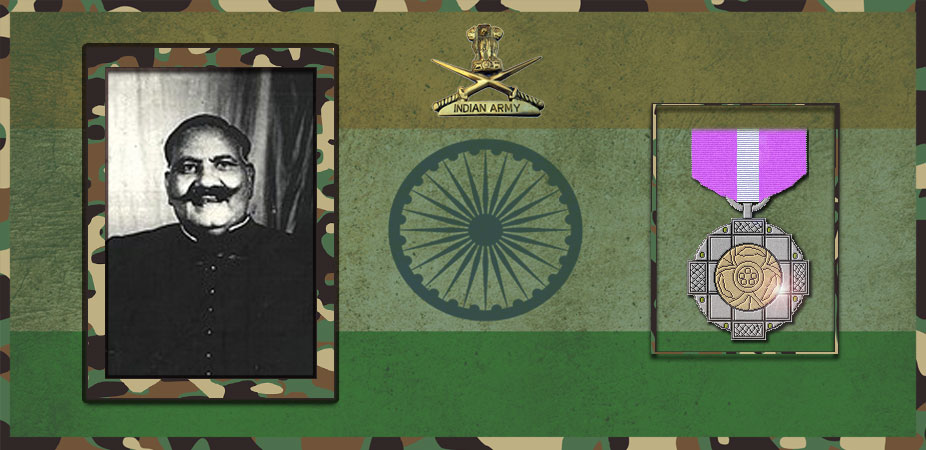Let's salute to our Indian Army together, We are proud to be Indian.
Let's salute to our Indian Army together, We are proud to be Indian.

Bade Ghulam Ali Khan (c. 2 April 1902 – 23 April 1968) was a Hindustani classical vocalist, from the Patiala Gharana.
Bade Ghulam Ali Khan was born in Kasur, a small town near Lahore, Pakistan then Punjab province in British India. After partition of India in 1947, Kasur became a part of Pakistan. His father Ali Baksh Khan was a singer in a West Punjabi family of musical heritage. He belonged to the Kasur Patiala Gharana of Punjab.
At the age of five, Bade Ghulam started learning vocal music from his paternal uncle Kale Khan, and later from his father Ali Baksh Khan. He had three younger brothers namely Barkat Ali Khan, Mubarak Ali Khan and Amanat Ali Khan.
Though he started his career by singing a few compositions of his late father Ali Baksh Khan and uncle Kale Khan, Bade Ghulam amalgamated the best of three traditions into his own Patiala-Kasur style: the Behram Khani elements of Dhrupad, the gyrations of Jaipur, and the behlavas (embellishments) of Gwalior. His raga expositions were brief contrary to convention and while he agreed that the beauty of classical music lay in leisurely improvisation, he believed that the audience would not appreciate long alaps and he had to sing for the masses and change the music to what the audience wanted. He excelled at more light-hearted ragas such as Adana, Bhupali, Hameer, Jaijaiwanti and Jaunpuri.
After the partition of India in 1947, Bade Ghulam went to his hometown Kasur in Pakistan, but returned to India later to reside permanently there in 1957. With the help of Bombay Chief Minister Morarji Desai he acquired Indian citizenship and moved to a bungalow at Malabar Hill in Mumbai. He lived at various times in Lahore, Bombay, Calcutta, and Hyderabad.
For a long time, he stayed away from singing in films despite requests and persuasions from well-known producers and music directors. However he was coaxed and convinced by film producer K Asif to sing two songs based on ragas Sohni and Rageshree for the 1960 film Mughal-e-Azam with the music directed by Naushad. He demanded and received an extremely high price, reportedly to the tune of Rupees 25,000 per song, when the rate for popular and star playback singers such as Lata Mangeshkar and Mohammed Rafi was below Rupees 500 per song at that time.
He was awarded the Sangeet Natak Akademi Award and in 1962 the Padma Bhushan Award.
He died at Basheerbagh Palace in Hyderabad on 23 April 1968 after a prolonged illness which left him partially paralyzed in the last few years of his life. He continued to sing and perform in public with the support of his younger son Munawar Ali Khan until his death.